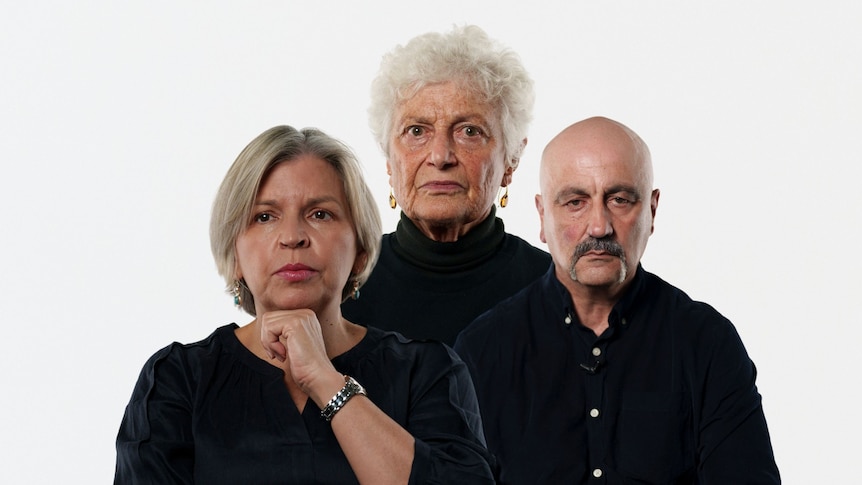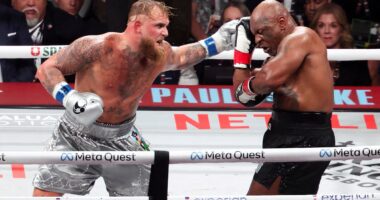In the last year, Western Australia locked up 746 children convicted or accused of a crime.
Almost all are likely to have some kind of neurological disability.
About two-thirds are Aboriginal.
Advocates warn very few are getting the support they need.
And in the last year, two of them took their own lives.
We sat down with three people who understand youth justice best and asked them what needs to change to avoid another tragedy.
WARNING: This story discusses incidents of self-harm. Aboriginal and Torres Strait Islander readers are advised that this article contains the name and image of a person who has died.
A year ago, Western Australia’s youth detention system reached what was meant to be its lowest point — a child’s death in custody.
Inside the walls of a juvenile wing of a maximum-security adult jail, 16-year-old Cleveland Dodd self-harmed.
He died in hospital a week later — a grim anniversary being marked by his family today.
The corrective services minister pledged it was “essential we take whatever steps we can now to create the safest environment possible and ensure a similar tragedy cannot occur again.”
But it did.
In August, a second young person, this time a 17-year-old boy, took his life in his cell inside the Banksia Hill youth detention centre.
“I have more confidence than ever before in terms of the way we are managing our juvenile detention facilities,” were the words of the premier.
Veteran advocate Gerry Georgatos does not share his optimism.
He’s overcome with frustration when he reflects on how governments of all stripes have dealt with the thorny issue of youth justice.
“Why wouldn’t you understand the unfairness and disadvantage they’ve lived from the beginning and never had a chance, they never had a chance in the beginning of life? Why?”
‘Why don’t you care?’
Mr Georgatos has supported Cleveland’s family since he self-harmed and was there when he drew his final breath.
He describes a complete failure to support troubled children in the richest state in the nation.
“These children who finish up in juvenile detention are Australia’s most vulnerable children and they remain the forgotten children,” he said.
“It just breaks my heart, and I’ve bleated about it for so long, and it just makes no sense that we’re going nowhere forward.”
Paul Papalia is the minister in charge of the system.
He said Perth’s two youth precincts were “vastly improved” under his watch when asked about a similar criticism of the government, made by former Corrective Services Commissioner Mike Reynolds.
“And it will continue to improve, and it is improving on a daily basis,” Mr Papalia said.
A life’s work
But one of Australia’s most respected child health researchers says it’s just not enough.
Improving the lives of children — particularly Indigenous children — is something Fiona Stanley has dedicated her life to.
The former Australian of the Year founded what is now The Kids Research Institute, which conducted a groundbreaking study into disability behind bars between 2015 and 2016.
It assessed 99 Banksia Hill detainees, with nine out of ten of those children having at least one form of severe neurodevelopmental impairment.
That means they have trouble with things like communication, decision-making and consequential thinking — all of which put them at higher risk of breaking the law.
About a third had fetal alcohol spectrum disorder, which means they have impairments in at least three areas.
The researchers called for regular and comprehensive screening of young people going into detention to work out what support they need.
Professor Stanley wants to go even further, and have at-risk children screened before they ever reach that stage.
“It’s clear from every single study done that if we intervened earlier … if we put them into a therapeutic program, they would not reoffend,” she said.
Professor Stanley said authorities were “ignoring the evidence” which could hold the key to keeping children out of detention.
“Unless we know what’s wrong with these kids and what their capabilities are, what their brain damage is, there’s no way we can help them,” she said.
Signs of change
There are signs that, six years on from that research being published, it’s at least starting to be acted on.
Dr Angela Cooney is one of the many experts who fronted an ongoing inquest into Cleveland’s death.
She said most children in detention will soon be screened for mental health issues and impairments within their first five days inside.
“That will flag who [then] requires a full assessment,” the acting Assistant Corrective Services Commissioner for Young People said.
But that alone is not a solution.
A year before his death, Cleveland was diagnosed with major depressive disorder, cannabis use disorder and a likely language disorder.
The inquest heard despite those diagnoses – which would have made his time alone in his cell more difficult – staffing and infrastructure issues meant for 77 of his final 93 days in detention, he was in his cell for more than 22 hours a day.
That meets the United Nations’ definition of solitary confinement and is expressly prohibited for juveniles under international law.
Those lockdowns have since eased, although children often described as “more complex” remain subjected to longer periods in their cells than their peers.
The Department of Justice declined to be interviewed for this story.
But in a statement sent to the ABC that detailed the “marked improvements” its made, it offered the screening program as an example, as well as “significantly increased” education attendance rates.
“Programs to address key criminogenic needs of young people in custody have been substantially expanded and improved,” the department said.
The spokesperson added a model of care enhancing every stage of detention, including community integration, continued to be implemented.
They said work was underway to develop “tailored and evidence-based” resources for Unit 18 staff.
‘Are you going to listen?’
Still, the system remains fundamentally flawed, according to human rights lawyer Hannah McGlade.
She too believes the system is too focused on locking kids up.
“Are you going to listen and do better?” she asks.
“Premier Cook … this approach of youth justice that’s now taking children’s lives is failing and it’s completely wrong.
“We need to change the whole way of looking at this.”
Dr McGlade is a Kurin Minang woman and member of the international United Nations Permanent Forum on Indigenous Issues.
She points to European countries that have adopted a more public health oriented approach to youth justice.
“Why can’t we do that?” Dr McGlade asked.
“Why is the state government spending $100 million on a new prison when that money is so urgently needed to actually stop kids coming into contact with the criminal justice system in the first place?
“We need programs in community to keep communities, to keep Aboriginal youth particularly, engaged in a positive way.
“We’re talking about sports, culture, employment opportunities, education and training. That’s where the investment needs to happen.
“Aboriginal children deserve better than this, and [Premier Cook] should know that. [He] should know better.”
Professor Stanley said Indigenous-led solutions needed to be given greater weight.
“They’ve got ways to actually better handle things like out of home care and child protection,” she said.
“Why haven’t you taken notice of the Aboriginal expertise, which could actually, once implemented, make a huge difference?”
Even the Police Commissioner has called for a greater focus on early intervention.
Mr Papalia last week acknowledged the importance of intervention programs, but was adamant that detention would always be necessary.
“Ultimately, if someone is a violent offender who murders, rapes, assaults people, hurts other people in the community there needs to be a consequence,” he said earlier this month.
“There needs to be a place that you can place them in a safe fashion and that is true of juveniles as it is of adults.”
Figures given to parliament this week showed of the 25 young people sentenced to detention at Banksia Hill on a particular night last month, seven fit the minister’; criteria.
Another sixteen had been found guilty of charges like robbery or property damage.
Frustration
The time it has taken to see improvements, and the need for many more changes, has frustrated all three.
At the heart of their concerns was a desire to move away from detention towards community-based solutions.
“What’s it going to take to change? Is it going to be another generation who understand that this approach is completely outdated, it’s shameful, it’s a waste of money and it has to stop?” Dr McGlade asked.
“We could say, ‘don’t you care about these kids?'” Professor Stanley said.
“But there must be some other reasons that you’re not taking notice.”
‘A part of me has died’
Almost a year after burying her son, Cleveland’s mother Nadene Dodd was too emotional for an interview.
“My son didn’t get the chance to enjoy life and grow from his teens to a man and live his dreams,” she said in a statement.
“It is not just the one year mark that is haunting and hurtful, it is every day. A part of me has died.
“I want everyone involved to speak in courts, to answer questions, to account.”
Similarly, his father Wayne Gentle described the “many times I don’t want to go on”.
“My beautiful boy deserves the truth to be known. There must be convictions or there is no justice,” he said.
Both have one question burning more than all others.
Words: Keane BourkeProduction: Gian De Poloni, Phoebe PinGraphics: Mark EvansPhotography: Jake Sturmer





